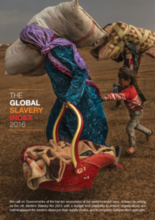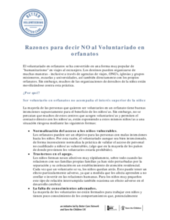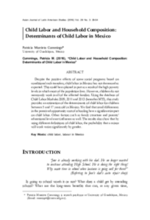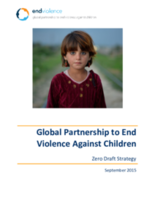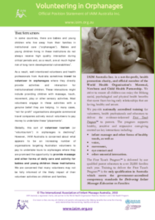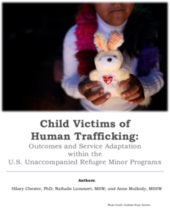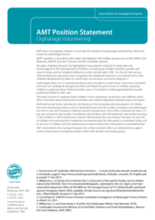Displaying 281 - 290 of 469
This year’s report on Global Slavery makes reference to orphanage tourism in the context of Cambodia.
Este documento provee una explicación detallada de las razones que Better Volunteering Better Care está desalentando el voluntariado internacional en orfanatos (centros de atención residencial).
The researcher in this study investigates the “relationship between child labor and the opportunity cost of schooling, taking into account other factors that influence parents’ decisions about child labor and schooling.”
This report is an analysis of the overall findings from the research project on Haitian child domestic workers.
This 28-minute documentary film, by filmmaker Chloe Sanguinetti, explores the phenomenon of “voluntourism,” a recent trend in which people, typically young people from Western countries, travel to countries in the Global South to volunteer.
This strategy explains how The Global Partnership to End Violence Against Children plans to prevent and respond to violence against children over the next five years. It will provide a platform to accelerate efforts to make girls and boys safe in the future, with the aim of delivering targets to end all forms of violence against children by 2030.
In August 2015, Child Family Health International (CFHI) held a webinar reviewing the situation of children living in residential care facilities around the world.
The International Association of Infant Massage in Australia has launched a position paper on volunteering in orphanages in order to address the problem of untrained volunteers being encouraged to conduct child care and infant massage practice in residential care centres, particularly in developing countries.
This paper presents the features of the Unaccompanied Refugee Minor (URM) program model that most effectively meets the specialized needs of foreign-born child victims of human trafficking.
In this position statement, the Association of Massage Therapists (AMT) of Australia clearly states that it does not endorse orphanage volunteering, referring to the positions of the Better Care Network, UNICEF, Save the Children and the ChildSafe network.

